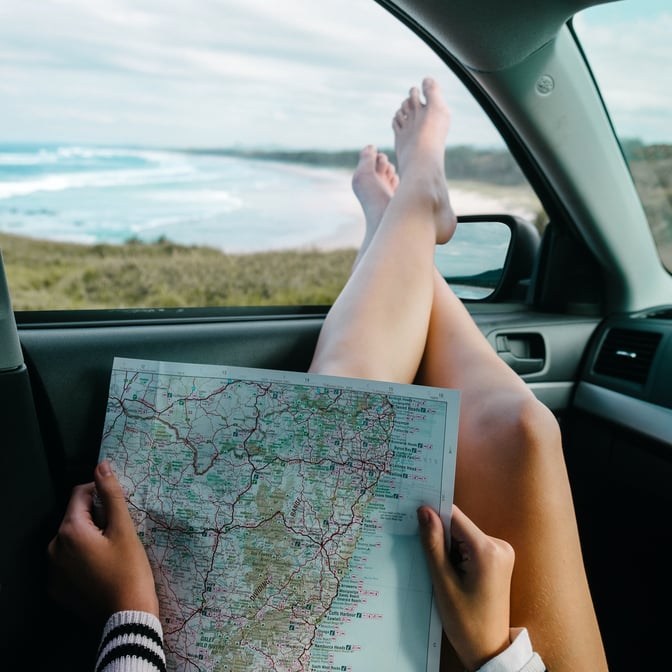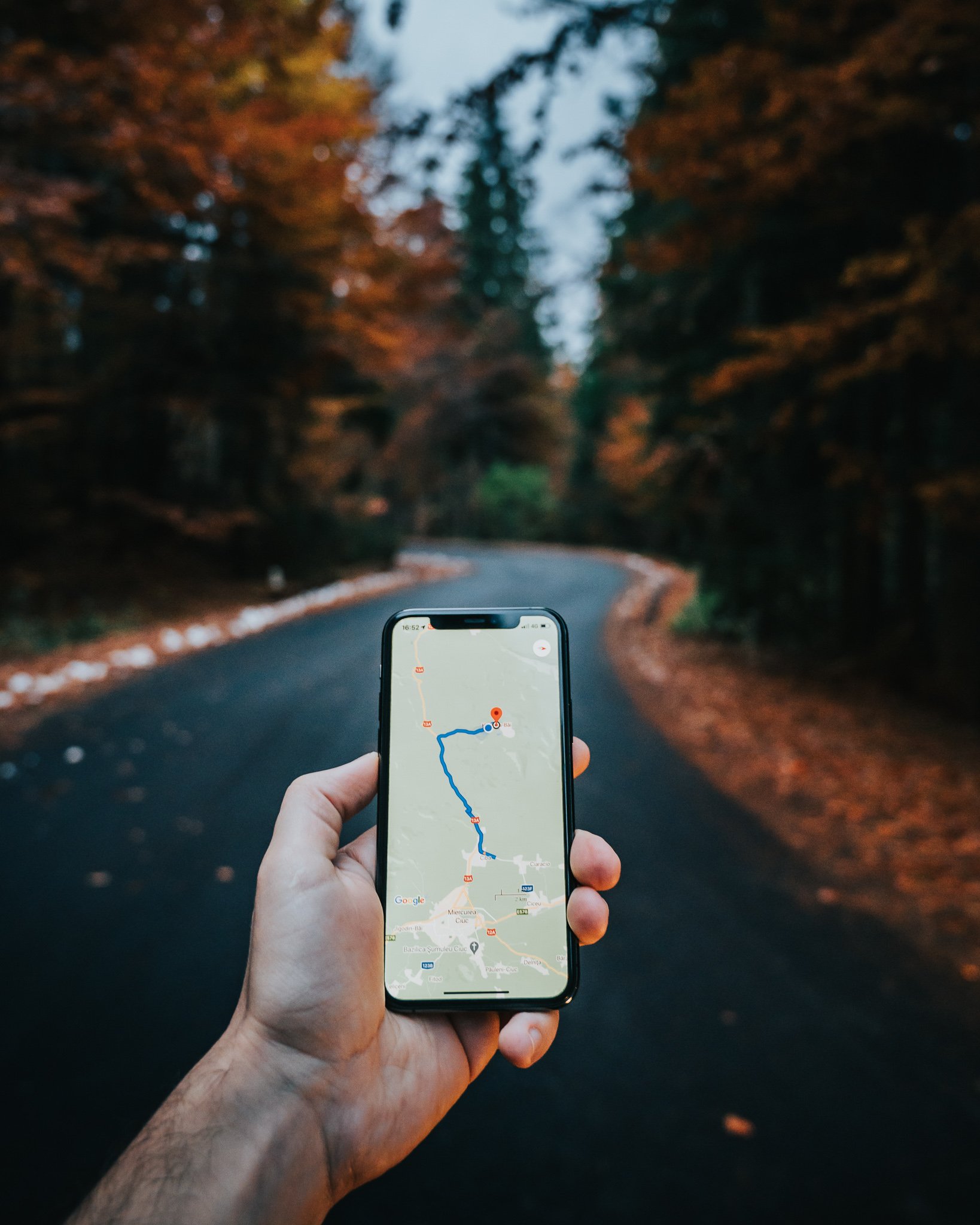Share this
Put Your Phone Down and Try a Paper Map
Get to know a navigation tool that won't run out of batteries
Smartphones have changed the way we travel and there are undeniable benefits to having one when visiting a foreign country. Whether you want to find the best cacio de pepe in town, find out how much Duomo tickets cost, or snap Insta-worthy photos to share, it can all be accomplished by the tiny device in your pocket.
With simple functionality and massive amounts of data available, digital maps have become one of the most ubiquitous apps for navigating new landscapes. But where does that leave the trusted and timeless paper map? Has it become a tool reserved for the technologically challenged? A device useful for our grandparents' generation but an archaic way of moving from place to place?
Perhaps not. In a time when digital maps dominate, there is still room and purpose for paper maps to coexist. Here are five reasons that you should ditch your phone and try a paper map instead.
1. You’ll learn the city better.
Using a paper map is the best way to familiarize yourself with your surroundings. Instead of looking down and absently relying on a phone for directions, you're forced to look up and notice places and landmarks on the route. You’ll be more likely to know your way around in the future and come across local gems that you may not have passed with a digital map.
2. Paper maps are more reliable.
Most of us would agree that cell phones are considered reliable. They stand up to our almost 24/7 use of them, and our urge to upgrade is typically based on new and improved functionality. On the daily, our cell phones work great. But using them outside of the country creates unique challenges.
Depending on the destination, cell coverage could be sparse and a digital map might not download. Expensive international data plans mean every moment the app is running and charges are accumulating. And some countries are scarce with outlets, meaning once your phone dies it could be hours until you’re able to recharge. All of these reasons point to the advantages of having a paper map on hand.
3. It helps you see the big picture.
When you search for a location on your smartphone, you get a big picture of a small area. The phone zooms in on the destination and gives you the most direct route from where you are to where you want to be. That’s helpful when you’re home and and trying to dodge traffic, but you’re on vacation! It’s all about the journey right? Using a paper map gives valuable context and allows you to see where you are in relation to the rest of the city.
4. It allows you to take a technology break.
Our world is driven by digital communication and it has never been easier to ‘be’ multiple places at once. For example, maybe you’re physically in Italy, but mentally you’ve just checked your email and are transported back to home, work, and an upcoming deadline.
Do yourself (and the person you’re traveling with) a favor and put down the phone. Be present, be engaged, and don’t make excuses for why you need to have your phone on you. Find out where the visitors center is, go pick up a free map of the city and get to exploring!
5. It’s an inexpensive souvenir to take home.
A paper map is proof of the adventure in all of its wrinkled, stained and ripped glory. It holds memories of your time away and is a portal back into another world. It’s one you might want to revisit when the vacation is over and you’re back to life’s routines. It can also be a great reference should you choose to return, or a resource for friends visiting the same area.
Conclusion
Next time you travel, pack your phone, but also pack your map. It will allow you to be present and connect with the culture that much more (Is it just us or is international cellphone service is always spotty anyways?). Plus, we all need some time to disconnect—why not have the opportunity to do it when we travel?
- February 2026 (2)
- January 2026 (6)
- December 2025 (1)
- November 2025 (3)
- October 2025 (1)
- September 2025 (1)
- August 2025 (3)
- July 2025 (1)
- June 2025 (1)
- April 2025 (2)
- February 2025 (1)
- January 2025 (1)
- October 2024 (1)
- September 2024 (2)
- August 2024 (1)
- July 2024 (2)
- June 2024 (2)
- May 2024 (1)
- April 2024 (3)
- March 2024 (7)
- February 2024 (3)
- December 2023 (2)
- November 2023 (1)
- September 2023 (1)
- August 2023 (2)
- July 2023 (2)
- June 2023 (10)
- May 2023 (4)
- April 2023 (1)
- March 2023 (3)
- February 2023 (1)
- December 2022 (1)
- October 2022 (2)
- August 2022 (4)
- July 2022 (1)
- June 2022 (2)
- May 2022 (1)
- April 2022 (4)
- March 2022 (7)
- February 2022 (6)
- January 2022 (5)
- December 2021 (29)

